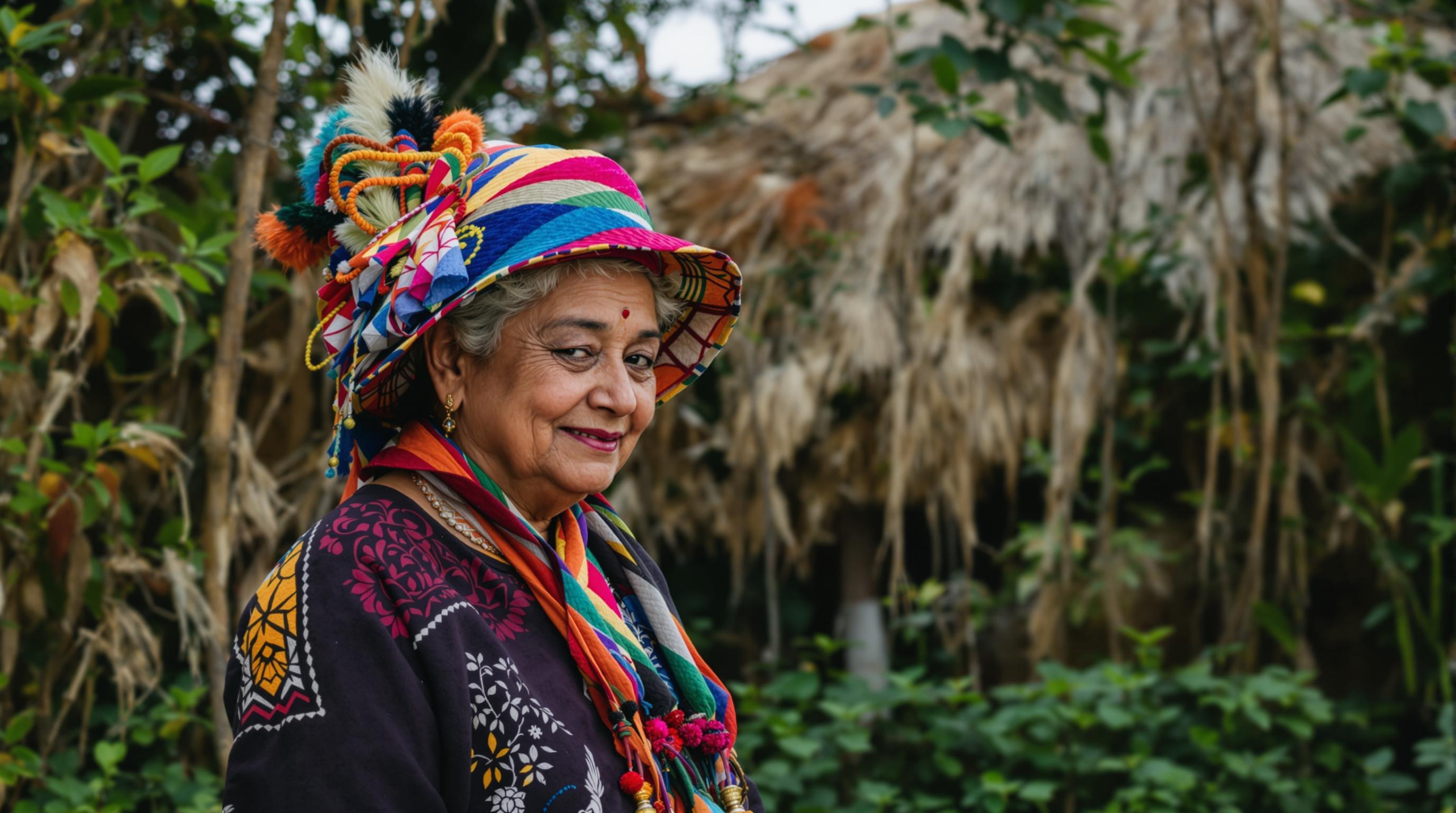Related Articles
- Navigating Ethical Travel: The Role of Arts and Crafts in Supporting Local Economies and Cultures
- Rediscovering Ancestral Routes: How Ancient Trails Offer Insights into Sustainable Travel Practices
- The Ethical Dilemma of Luxury Travel: Splurging or Supporting Sustainable Development?
- Navigating Ethical Dilemmas: The Quest for Authenticity in Local Food Experiences While Traveling
- Beyond the Facade: Exploring the Subsurface Infrastructure of Iconic Historical Structures
- Curiosities Unearthed: The Surprising Connections Between Historic Sites and Modern Art Movements
8 Overlooked Local Wisdoms for Responsible Travel: Enriching Journeys with Insights from Indigenous Cultures and Traditions
8 Overlooked Local Wisdoms for Responsible Travel: Enriching Journeys with Insights from Indigenous Cultures and Traditions
8 Overlooked Local Wisdoms for Responsible Travel
Traveling responsibly means more than following guidelines; it involves immersing oneself in the local culture and understanding the traditions that guide communities. Indigenous cultures often hold a wealth of knowledge and values that can not only enrich our travels but also encourage a more sustainable approach to tourism. Here, we explore eight pieces of local wisdom that can transform your travels while respecting the traditions of those you visit.
1. The Importance of Connection to Land
Indigenous cultures often emphasize a deep-rooted connection to the land. Understanding this bond can greatly enhance a traveler’s experience. It teaches us that every natural feature is imbued with history and significance, and that being mindful of this allows travelers to appreciate their surroundings more deeply.
For instance, many Native American tribes believe that land is not just a resource, but a living entity with its own rights. Engaging with local environmental stewardship initiatives can offer insights into sustainable practices that foster respect for the land and its ecosystems.
By walking the land with this attitude, travelers can learn to navigate landscapes in a way that honors both nature and heritage, ultimately leading to a more enriching travel experience.
2. Stories of Ancestors
Every culture has its stories, and for many indigenous peoples, these tales are not mere narratives but vital links to their identity. Learning local folklore and indigenous stories provides travelers a closer connection to the communities they visit. These stories often highlight the values and teachings of a culture, such as respect for nature and community bonds.
Participating in storytelling sessions or engaging with local guides can reveal layers of meaning about historical events and spiritual beliefs that shape identity. For example, places like Australia's Aboriginal lands hold Dreamtime stories, essential for understanding the cultural connection to the environment.
Such experiences not only entertain but enrich the traveler’s understanding of cultural nuances, making each journey feel like a shared experience rather than a tourist activity.
3. Traditional Ecological Knowledge (TEK)
Traditional Ecological Knowledge refers to the understanding of the relationships between living beings and their environment, preserved over generations. Indigenous peoples have vast knowledge about local flora and fauna, ecosystem interactions, and sustainable resource management.
For travelers, this insight provides invaluable lessons on biodiversity and conservation methods that have been practiced for centuries. Engaging with local guides who can share TEK can illuminate effective, sustainable methods of interacting with the environment.
Such knowledge can inspire travelers to adopt sustainable practices in their own lives, reinforcing the importance of preserving ecosystems both locally and globally.
4. Communal Living and Shared Responsibilities
Many indigenous cultures thrive on communal living, where sharing resources is paramount. This perspective on collective ownership can redefine how travelers view interactions in host communities. Understanding the principles of cooperation and shared responsibilities fosters harmony, not only within the community but also with visitors.
Travelers can partake in community projects and group activities that echo this value. For instance, engaging in local festivals or meals can deepen one's appreciation for the communal spirit while creating lasting connections.
Recognizing the importance of community bonds can enhance the travel experience, making it less about the individual and more about the collective effort toward harmony.
5. Respectful Engagement with Spiritual Beliefs
Indigenous spirituality is often deeply intertwined with everyday life and the natural world. Demonstrating respect for local customs, rituals, and places of worship is crucial when traveling. Observing and participating in ceremonies—when invited—can provide significant cultural insights without disrespecting traditions.
Travelers should approach these experiences with openness and humility. Engaging with spiritual leaders or local guides who are knowledgeable can ensure that interactions are appropriate and respectful. Awareness of cultural sensitivity, such as dress codes or behavior, can help in demonstrating respect for these beliefs.
Through understanding and respect, travelers can find a deep sense of connection and greater wisdom about themselves and the cultures they visit.
6. The Cycle of Seasons
Indigenous cultures often have an intricate understanding of seasonal changes, knowing when to harvest, hunt, or migrate. Learning about these cycles fosters an appreciation for nature's rhythms and encourages more environmentally friendly travel practices, such as supporting seasonal tourism.
For travelers, aligning their visits with these seasonal events not only enhances their experience but reinforces the importance of timing and respect for nature's cycles. Engaging in local harvest festivals or migration ceremonies can provide unique insights into sustainable practices.
Respecting these cycles contributes to responsible tourism that values local traditions and supports communities economically without causing disruption.
7. Language and Expressions
Language is a window into culture, and many indigenous languages carry unique perspectives and philosophies. Learning a few phrases or local expressions enhances interactions with locals and showcases a traveler’s respect for their culture.
Language reflects the relationship people have with their environment; many indigenous tongues contain words that describe local flora and fauna in nuanced ways. Engaging in language workshops or community classes provides greater depth to the traveling experience, celebrating the beauty of communication.
Approaching language with an open heart fosters connection and promotes understanding across cultural divides, enhancing the traveler's experience.
8. Sustainable Eating Practices
Food is a unifying aspect of culture, and indigenous communities often have sustainable practices of planting, harvesting, and cooking. Embracing local cuisine not only supports local economies but can also educate travelers about the ethical consumption of food.
Participating in local cooking classes can reveal traditional methods of preparing meals that reflect a community's connection to the land. Travelers have the opportunity to learn about the significance of certain foods, such as those that are sacred or vital to subsistence.
Understanding indigenous culinary practices is a delicious way to embrace local culture, promoting sustainability through conscious food choices that respect local environments.
Embracing these eight wisdoms fosters a more profound, respectful connection with indigenous cultures and traditions. By prioritizing the insights gained from these communities, travelers can enrich their journeys while promoting sustainability and cultural appreciation.




